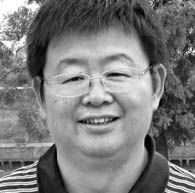 |
|
Zhang Huakai, chairman of Hanhe Cable |
But more importantly, the company plans a long-term presence by setting up its own local companies and factories in some markets with a large demand, such as Nigeria and South Africa.
"Our business in Africa is increasing, but is not steady. So we want to invest directly in the market, and hopefully can do this with South Africa this year," he says. "As long as sales reach a certain size, we will accelerate building factories as soon as possible. Business there now is scattered, and we want to achieve some significant size," he says. In some years, they get big projects, including some worth 300 million to 400 million yuan, but in others there are few projects.
In developed countries and regions such as Europe, the United States and Australia, regulations and industry technology standards are clear and complete, and the markets are more mature. As long as the company makes products following the commercial specifications of these markets, it is easy for them to do business there, Zhang says.
"Every African country has its own regulations and has adopted different industry standards, so there are a lot of different things we need to learn and to make adjustments to. We understand a lot about developed countries, but Africa is more unfamiliar, including the business environment, regulations and product standards.
"We need to set up a sales network and then set up a factory to make products that cater to the local market's characteristics and requirements."
Moreover, the national security and social security of some countries are also concerns, making the company more cautious about investing in them. Sometimes it is also difficult to get the right person to travel to Africa, because some think it is unstable and risky.
Zhang says the company is looking to make long-term investment, not just sales. So while developing the market, they intend to provide more employment to local people.
The company has also set up a charitable fund of 200 million yuan, part of which will be used for local society as a whole, and part for employee welfare at home.
Zhang says the company is now is searching for and cultivating more overseas employees who understand not only the company and the power industry but also Africa. Hiring locals also saves the company money, he says.
One way is recruiting African college students in Qingdao University and Ocean University of China in Qingdao to work as interns for the company, allowing them to improve their understanding of the industry and the company, in hopes that when they graduate and go back home, they would work for the company or help it find good employees. They have been taking on short-term interns for about a year, and currently have three.
Pratt Brookman, from Ghana, a student at Ocean University of China majoring in international business, is one of them. He has been involved with the company for three months.
"It will help my career. I intend to work for the company after I graduate," he says. "I want to do something related with business. I didn't have much knowledge about electricity, but I'm learning more about it gradually. I think the company will help me grow."
In Africa, the biggest competition comes from Chinese companies, which now want to go global because of surplus production in the domestic market, Zhang says. Their production capacity, product quality and prices are all very competitive, he says.
As China expands its reach, Zhang says he wishes it also would promote its industry standards for electrical power equipment.
"Chinese companies are going global, and we should make Chinese standards better recognized overseas. China's standards mainly match international standards or even exceed them. In the past, African countries would use one country's standards for purchases. If they accepted China's standards, it would be smoother for our business there."
